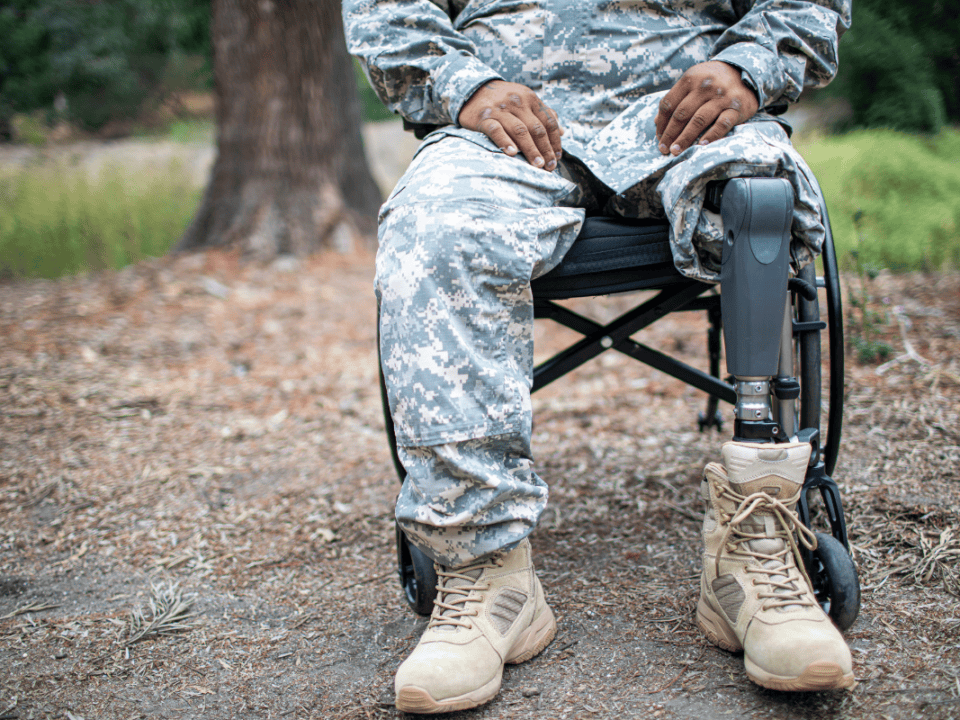 Are you worried about a loved one with military PTSD? While our recent awareness of PTSD as a result of military service has led to increasingly open conversations and new treatments and therapies for veterans returning from deployment, PTSD itself is nothing new.
Are you worried about a loved one with military PTSD? While our recent awareness of PTSD as a result of military service has led to increasingly open conversations and new treatments and therapies for veterans returning from deployment, PTSD itself is nothing new.
When your spouse, partner, family member, or friend shows signs and symptoms of PTSD, you may feel helpless and unsure what to do.
We’re here to help with advice for helping your loved one, as well as yourself, when dealing with the often-disabling effects of PTSD.
First: It’s Okay to Feel Scared
It is perfectly understandable and acceptable to feel afraid, frustrated, and angry when PTSD invades a formerly happy home. The symptoms of PTSD, including a decreased ability to communicate, emotional or physical withdrawal from loved ones, irritability, and self-medicating through drug or alcohol use, can often cause frustration or even fear in those trying to support the veteran in his or her transition back into civilian life.
Don’t attempt to repress your own worries and fears. They are perfectly natural, and open communication is an important step in helping someone suffering from PTSD to realize they may need to seek care.
How Can You Help a Loved One Suffering From PTSD?
- Researching the symptoms of PTSD and how it affects different people differently.
- Offer a sympathetic ear if they’re willing to talk. If not, let them know you’re here for support even when neither you nor they are sure what to say.
- Offer to accompany them to doctor’s visits, help them write a list of questions to ask during the appointment, and help with medication.
- Encourage continued contact with family and friends.
As withdrawal is one of the biggest symptoms of PTSD, you may find that your loved one refuses your help or says they don’t need any.
Be sure to remind them that you are happy to give them the space they need, but that you’re here to help when they are ready to ask.
Practice Open Communication
Many families find it difficult to discuss emotions and vulnerability, which may lead your loved one to shy away from or avoid talking about their PTSD or leave them unable to admit they need help.
This can lead to communication breakdowns in other aspets of life, too. Focus on keeping communication open, honest, clear, and to the point. Be sure to listen carefully when your loved one is speaking with you, and only offer advice if they are open to hearing it.
Don’t talk around feelings and emotions, but state them openly and encourage your loved one to do the same. Ask them what help they may need to speak openly in the future.
If communication difficulties persist and your relationship is suffering, it may be worth looking into family counseling.
Therapy can help everyone in the family understand how better to speak with each other about this change in their lives, and help you build a plan for how to move forward emotionally.
Remember That You Deserve Care, Too
Spouses and children of veterans suffering from PTSD often find themselves walking on eggshells in an attempt to “keep the peace”, throwing their own mental and emotional health by the wayside in an attempt to smooth things over.
There’s an old saying: “You cannot give someone water from an empty well.”
If you don’t care for yourself, you’ll be drained physically, emotionally, and mentally. Spouses and partners of veterans suffering from PTSD often “burn out” and become sick or suffer from depression or anxiety themselves.
A few ideas for self-care that can help you to maintain your own emotional and physical well-being while supporting your loved one include:
- Don’t give up your outside life. Pursue your hobbies and interests outside the home.
- Schedule time out with friends
- Make sure you take time to exercise regularly and eat healthy foods.
- If you feel yourself suffering from physical ailments or depression, see a doctor.
- Never feel guilty that you can’t “fix” your loved one or that you don’t have all the answers.
Treatments for and understanding of PTSD continue to evolve, with new medical and scientific research coming out all the time. You should never feel like you have to have all the answers, or that you’re the only person who can help your loved one.
Legal Representation for VA Disability Related to PTSD
PTSD can be disabling, whether it involved direct combat experiences, sexual trauma, or even if you never saw combat. If you know have a loved one who is a veteran with PTSD as a result of military service, Bluestein Attorneys’ SC Veterans Advocates Team is here to help.
Reach us by phone at (803) 779-7599 or contact us online at any time to request your FREE consultation.




